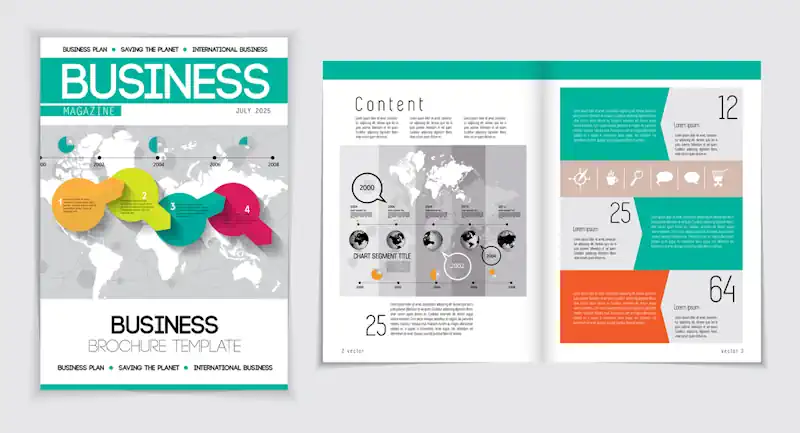Looking to start a profitable design business without advanced design skills? Creating and selling Canva templates could be your perfect opportunity. This growing market allows you to help companies and entrepreneurs create professional-looking content while building a scalable income stream. Whether you’re a designer looking to diversify your offerings or someone who enjoys creating visually appealing content, this guide will walk you through everything you need to know about building a successful Canva template business.
Why Canva Templates Are in Demand
By offering custom Canva template creation services, you help businesses, content creators, and individuals save time while elevating their design game. Many people want to create visually appealing content for social media, websites, or marketing materials, but they often lack the design skills or time to start from scratch.
Custom Canva templates solve this problem by providing them with ready-made designs that are easy to customize, allowing them to maintain a consistent, professional look without hiring a full-time designer. Selling custom templates gives you a scalable and profitable freelance income stream while allowing your clients to create beautiful content with ease.
Understanding Your Target Audience
Your process starts by identifying the target audience and the specific type of templates they need. Whether you’re working with social media managers, small businesses, bloggers, or eCommerce store owners, each client will have different design needs.
Some may need Instagram story templates, while others are looking for branded presentation slides or marketing brochures. By understanding their specific goals and the platforms they use, you can create templates that fit their style, branding, and functionality. This tailored approach ensures that the templates resonate with the client’s audience and make it easier for them to create content that aligns with their brand.
Design Principles for Canva Templates
Creating effective Canva templates requires attention to several key design elements that ensure both visual appeal and usability.
Focus on Simplicity and Customization
When designing Canva templates, the focus is on simplicity and ease of customization. Your goal is to create templates that look professional but are flexible enough for non-designers to use.
Canva’s drag-and-drop interface allows users to change text, images, colors, and layouts with minimal effort. You’ll design templates that balance visual appeal with functionality, making sure users can easily customize them to fit their brand without needing advanced design skills. This includes choosing fonts, colors, and layouts that are modern and visually cohesive while leaving enough room for customization.
Incorporating Branding Elements
Branding is a critical component of the templates you’ll create. Many businesses and creators are focused on maintaining a consistent brand image across all their content, from social media posts to presentations.
You’ll ensure that the templates reflect the client’s branding guidelines, including their color palette, fonts, and overall design aesthetic. For businesses that haven’t yet solidified their brand identity, you can offer guidance by suggesting design elements that will give their content a cohesive look. Custom branding helps clients stand out from their competition and makes their content instantly recognizable.
Template Use Cases and Optimization
You’ll also need to consider the specific use cases for the templates. For example, social media templates need to be optimized for different platforms. Instagram posts, stories, and Facebook ads all have different dimensions and best practices, and you’ll create templates accordingly.

Presentation templates, on the other hand, need to be clear, professional, and easy to navigate. By designing with the end use in mind, you make the templates more valuable and useful for your clients, ensuring they can create polished content that fits their needs.
Diversifying Your Template Portfolio
Adding a variety of template types to your offerings allows you to serve a wider audience. Beyond social media templates, you can create templates for presentations, business cards, media kits, email marketing, event invitations, or eBooks.
Diversifying your template offerings helps you attract a range of clients, from influencers and marketers to entrepreneurs and corporate teams. By providing options for multiple content types, you increase the potential demand for your products and open up more revenue streams.
Selling and Marketing Strategies
A successful Canva template business requires effective selling and marketing approaches to reach your target audience.
Template Packaging and Sales Platforms
Once you’ve created the templates, you’ll sell them either as individual products or as part of larger bundles. Canva templates are popular in digital marketplaces like Etsy, Creative Market, or your own website.
Bundling templates—such as offering a full social media kit with Instagram posts, stories, and Facebook cover templates—adds value for the client and increases the perceived worth of the product. Offering customizable packages also allows you to charge premium prices for templates that cater to specific industries or niches.
Marketing and Promotion
Marketing your Canva templates effectively is key to generating consistent sales. You’ll need to showcase your designs in a way that demonstrates their quality and versatility. Creating high-quality mockups of the templates in use helps potential buyers envision how the designs will work for them.
You can also create promotional materials that highlight the ease of customization, showcasing before-and-after examples that demonstrate how clients can quickly adapt the templates to their brand. Sharing testimonials or case studies from satisfied clients adds credibility and reassures potential buyers that your templates deliver value.
Digital Marketing Channels
Using social media and email marketing is a great way to promote your templates. Platforms like Instagram and Pinterest are visual-heavy, making them ideal for showcasing your Canva template designs.
You can create engaging posts or stories that highlight the features of the templates, provide tips on how to use them and link to your digital store. Building an email list allows you to market new templates directly to a dedicated audience who is already interested in your work. Offering discounts or exclusive template releases to your email subscribers can boost sales and build customer loyalty.
SEO and Visibility
SEO can also help drive organic traffic to your template listings. Using relevant keywords in your product descriptions and titles will make it easier for potential buyers to find your templates through search engines.
Whether it’s “Instagram Canva templates for coaches” or “modern business presentation templates,” optimizing your listings with specific keywords ensures that your products appear when buyers are searching for templates that fit their needs. This helps you reach more people without relying solely on paid advertising.
Custom Template Services
You can also offer custom template creation services for clients who need templates designed specifically for their brand. While selling pre-made templates is a great way to generate passive income, custom work allows you to charge higher fees and cater to clients who want something unique.
You can offer one-on-one consultations to understand their design needs and deliver fully customized templates that align with their branding and marketing goals. This service not only builds stronger relationships with your clients but also provides a higher-value offering to complement your passive income from pre-made templates.
Pricing Strategies
Pricing your Canva templates depends on the complexity of the designs and the market you’re targeting. Simple templates, such as basic social media posts, might be priced lower, while more elaborate template bundles for marketing or presentations can command higher prices.
Offering tiered pricing based on the number of templates in a package or the level of customization allows you to cater to different types of buyers. For example, a business owner might be willing to pay more for a complete marketing kit with templates for social media, presentations, and email marketing, while a solo creator might prefer a smaller, lower-cost bundle.
Is a Canva Template Business Right for You?
Starting a Canva template business could be an excellent choice if you identify with any of the following:
- You have a good eye for design and color combinations, even if you don’t have formal design training or advanced software skills
- You enjoy creating visually appealing content and have a knack for arranging elements in a pleasing way
- You’re detail-oriented and can spot when something looks “off” in a design
- You like to stay current with visual trends, especially in social media and digital marketing
- You’re interested in passive income streams and creating products that can be sold multiple times
- You enjoy helping others present themselves professionally online
- You have experience with social media marketing or content creation and understand what makes content visually engaging
- You’re comfortable learning new tools and enjoy exploring different features within platforms like Canva
- You have good organizational skills and can manage multiple template designs and variations
Getting Started with Your Template Business
Ready to begin creating and selling Canva templates? Here are the essential first steps to launch your business:
- Master Canva Pro’s features: Familiarize yourself with all of Canva’s premium features, especially those that make templates more valuable, such as animations, premium elements, and brand kit functionality
- Research your niche market: Choose a specific industry or content type to focus on initially, such as fitness professionals, life coaches, or real estate agents. Study their content needs and current design trends in their field
- Create your first template collection: Start with a small, cohesive collection of 5-10 templates that solve a specific problem for your target market. For example, create a complete Instagram story template set for wellness coaches
- Set up your portfolio: Create mock-ups of your templates in use and gather examples of different ways they can be customized. This helps potential buyers visualize how they could use your templates
- Choose your selling platform: Decide whether to start on an established marketplace like Etsy or Creative Market or create your own website. Consider starting with a marketplace to learn what sells best before investing in your own platform
- Create clear template documentation: Write user-friendly instructions for your templates, including how to customize colors, fonts, and elements. Consider creating short tutorial videos to help customers get the most from your templates
- Design your first promotional graphics: Use your own templates to create marketing materials that showcase their versatility and professional look

Scaling Your Template Business
Scaling your Canva template business can involve partnering with influencers, businesses, or online educators to create co-branded or niche-specific template sets. For example, partnering with a popular business coach could help you create a set of templates tailored specifically for coaches, with both your name and the influencer’s brand attached.
This can help you reach new audiences and drive additional sales through partnerships. You can also sell licenses for your templates to agencies or businesses that want to use them repeatedly, creating another revenue stream through bulk or enterprise sales.
Create and Prosper with Canva Templates
Offering custom Canva templates is a scalable, profitable way to help businesses and individuals create professional-looking content with minimal effort. By designing templates that are easy to customize and aligned with your clients’ branding, you empower them to produce high-quality visuals without needing advanced design skills.
Whether you sell pre-made templates or offer custom design services, you’re providing a valuable product that helps clients save time and maintain a consistent visual identity. This makes Canva template creation a flexible and rewarding freelance business opportunity that can generate both passive and active income.




